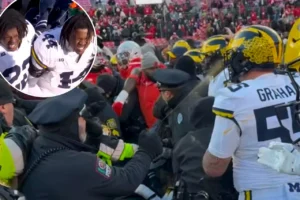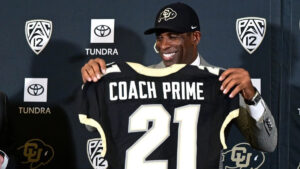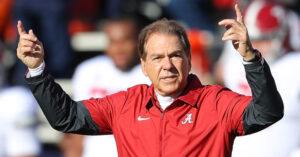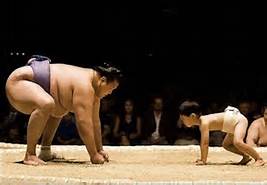Well, rivalry week is over in college football, and I had the joy of reading about half a dozen dick swinging, er, I mean flag planting incidents. The Michigan v. Ohio State game was probably the biggest news as far as dick swinging, er, I mean flag planting in college football, but we actually had a number of incidents all across this brave and free nation of ours.
Nebraska v. Iowa, Texas A&M v. Texas, North Carolina State v. North Carolina, Florida v. Florida State and probably half a dozen more I don’t even know about. Hooray. It’s good to see all those dicks, er I mean flags, are bigger and better than yours.
What is with all this Dick Swinging, er I mean Flag Planting?
Basically, rivalry week in college football is when two traditional rivals play each other. It’s fairly straight-forward concept designed to generate a lot of enthusiasm from fans, players, luxury box owners, and particularly television viewers. By that I mean money.
What happens is when the visiting team wins the game they wish to celebrate. All well and good. You win the game, go right ahead and celebrate. Lately the celebration seems to include dick swinging, er, I mean flag planting. This is when the visiting team runs to the center of the field, pulls out their insecure, tiny little dick, er I mean flag, and plunges it into soft, yielding turf where their opponents’ logo is painted.
What heroes. What brave men. What considerate guests.
The home team then rushes forward, their own dicks, er, I mean flags a waving and attempt to forcibly pull their opponents’ dick, er I mean flag, out of the soft yielding turf or prevent the penetration all together. It’s a glory to behold.
College football, the great and glorious home to the dick swingers, I mean flag planters. Aren’t we proud?
Tom Liberman



 For those of you who are college football fans, this was a grim week. There were very few games of much interest and there is a reason for that. Money. Money for everyone except the players but
For those of you who are college football fans, this was a grim week. There were very few games of much interest and there is a reason for that. Money. Money for everyone except the players but 